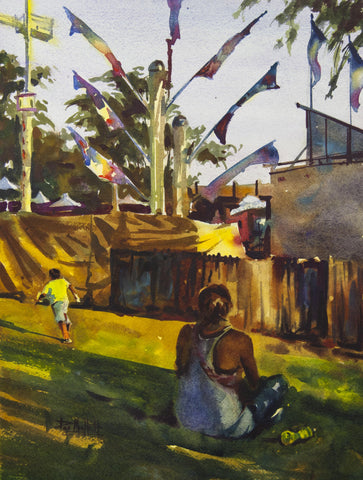Learning To Paint - Embracing the Struggle.
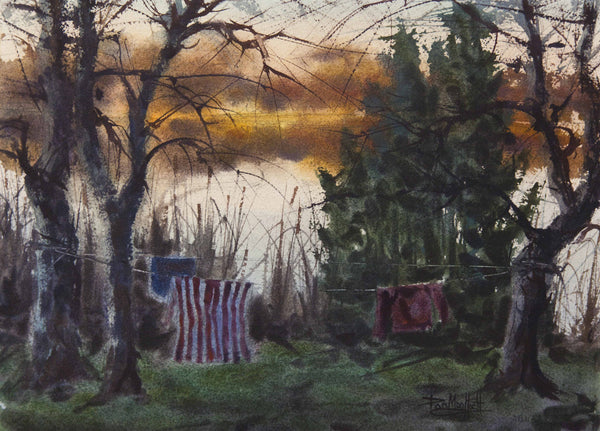
Frustrated with your work? Read this before you "hang it up"
Whether you are a seasoned veteran or new to painting, there are experiences that we all have in common. One painting can be incredibly fun and gratifying, but the next a complete struggle. In this article I share some of the concepts that have given me clarity and a healthy perspective especially when I’m really struggling with my work.
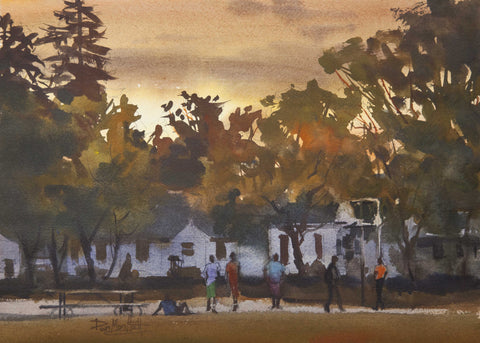
Knowledge vs. Ability
One of my long-time painting friends told this joke and it still makes me chuckle to this day. “The quickest way to improve the quality of your paintings is to lower your standards”. Achieving success partially depends on your definition of success. When you stop and think about it, it is amazing how much we need to know and be able to do in order to paint a satisfying picture, but sometimes things don’t turn out the way we thought they would, so we get disappointed. That disappointment stems from the gap between what you think you can do and what you actually can do. As a college professor once told me: “Knowledge will always surpass ability”. You are able to envision it long before you can actually do it. Keep Painting.
With failure comes frustration, but gratification is the reward for keeping after it, and few things will strengthen your self-image more than personal growth.
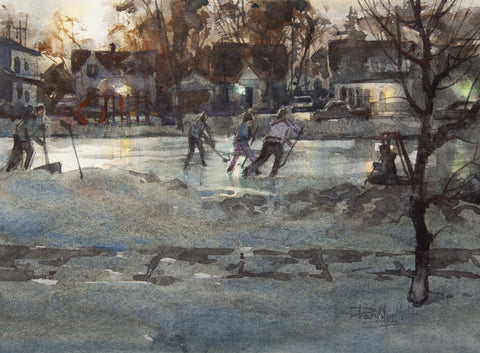
Cashing in the reality check.
If we are being honest with ourselves we can probably admit there will always be someone “better” than us at our chosen medium or subject, if not among our peers then certainly in art history books. I find that concept liberating because it shifts the focus from being the “best” to simply enjoying the process and finding what is unique about your work. Someone much smarter than me once said “You have to lose yourself to find yourself”. Change the objective from a “status” goal to a “growth” goal and be a much happier painter.
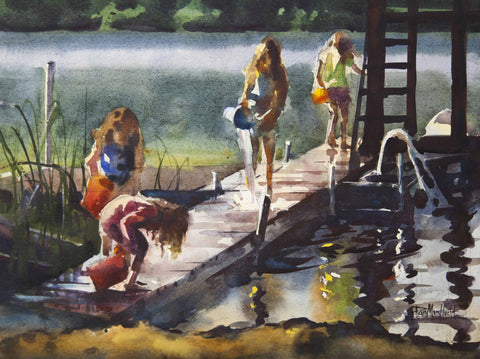
Painting is fun.
When I started painting in 9th grade it wasn’t because I wanted to be the best painter ever, it was because I was absolutely fascinated with it! I couldn’t wait to get home from school to work on a painting. Painting made me curious again, and I loved discovering what made something look real; it was like playing with magic. Gravity pulling down a fluid wash and making the most amazing sky was, and still is, exhilarating! That magical element; the ability to invent things, create moods, and evoke imagination are inspirations to this day.
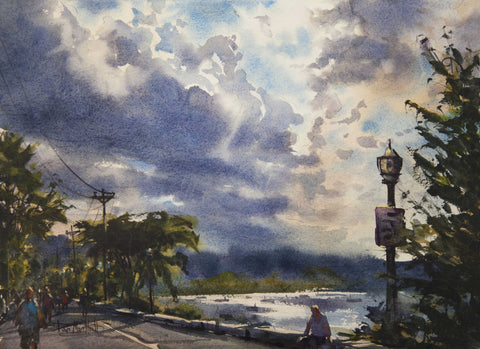
Permission to fail.
Many beginner artists can paint a few subjects with some degree of satisfaction but when trying something new they struggle and eventually fail, typically by overworking the painting. After many years of painting and teaching I now realize this is completely normal, I failed initially and still fail on a regular basis. Part of the thrill of painting is being inspired by some new fascinating part of life and trying to express it through paint. Failure is not only likely but inevitable. Why should you magically be able to do something that you’ve never attempted before? Of course it takes a little practice! Some people catch on faster than others but every successful painter out there will tell you that representational drawing and painting is a learnable skill that takes time and patience. In fact, in order to become a better painter, you have to first fail; it’s necessary. This topic in painting always reminds me of a quote by Calvin Coolidge that I first read in Edgar Whitney’s book:
“Nothing in this world can take the place of persistence. Talent will not: nothing is more common than unsuccessful men with talent. Genius will not; unrewarded genius is almost a proverb. Education will not: the world is full of educated derelicts. Persistence and determination alone are omnipotent.”
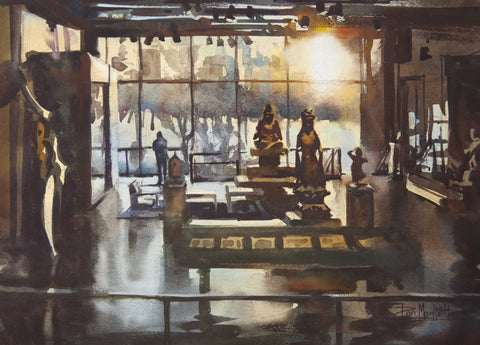
A paradigm shift.
My dad’s mentor Gerry Korte used to say if 1 out of every 4 paintings turned out then he was happy. That was shocking to hear for the first time, but now I understand it more. Intimidating to hear at first, but the key here is that by embracing the reality that you will struggle, it makes you much less disappointed when you do. This frees you up to enjoy the process. Even if the end product as a whole isn’t a masterpiece, there are likely to be many successful parts within it. One of my favorite painters, Frank Webb, used to say “Success in watercolor painting is not measured in the quantity of paintings completed, but in the acres of paper used.” This shift in scale is relieving; it takes the pressure off of what I’m working on now and allows me enjoy the process of creating. Be relaxed and carefree, it’s important to not take ourselves too seriously, especially in art.
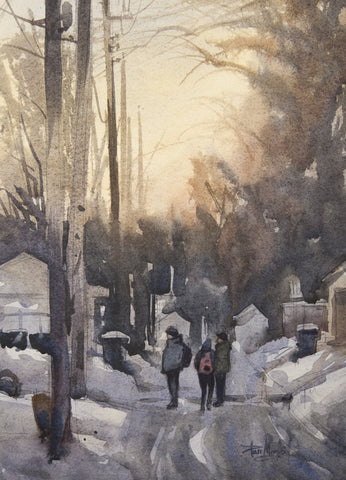
Art is in the Idea.
Ideas are ultimately more interesting than technical virtuoso. Contrary to popular belief, technical skill isn’t everything in painting. My friend Derek Davis taught me; “An artist is 3 things: a craftsman, an architect, and a poet.” The craftsman is concerned with the nuts and bolts: the 7 elements of painting (line, shape, value, color, direction, size, and texture). The architect is responsible for using the 8 principles of design to arrange the elements into an effective composition. The 8 principles of design are Dominance, Unity, Repetition, Variation, Alternation, Contrast, Harmony, and Balance. The poet’s job covers the reason for painting in the first place; the artist’s voice and the inspiration. What I’ve learned is that it’s as simple as having a genuine reaction to the world around you. It doesn’t have to be a fancy, deep, or heavy observation; it just has to be your observation. As the old phrase goes, "paint where you are and paint what you know".
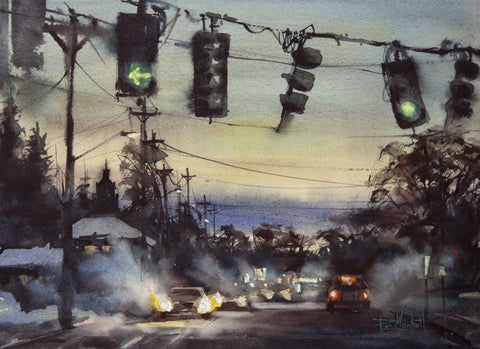
Keep On Keepin' On
You are unique, and sharing what’s important to you is most definitely worthwhile. What a privilege it is to be able to do it through painting. I try to remind myself on a regular basis how lucky we are to have the freedom to paint pictures. At times it feels frivolous when looking at the real struggles going on in the world today, but few things feel as natural and genuine to me as expressing my reaction to the world through paint. For me it feels like a purpose in life. At the end of the day painting is mostly fun and enjoyable, but if you find yourself looking for a bit of guidance to keep painting, my advice would be to try not to take yourself too seriously, embrace the struggle, and enjoy the process.









